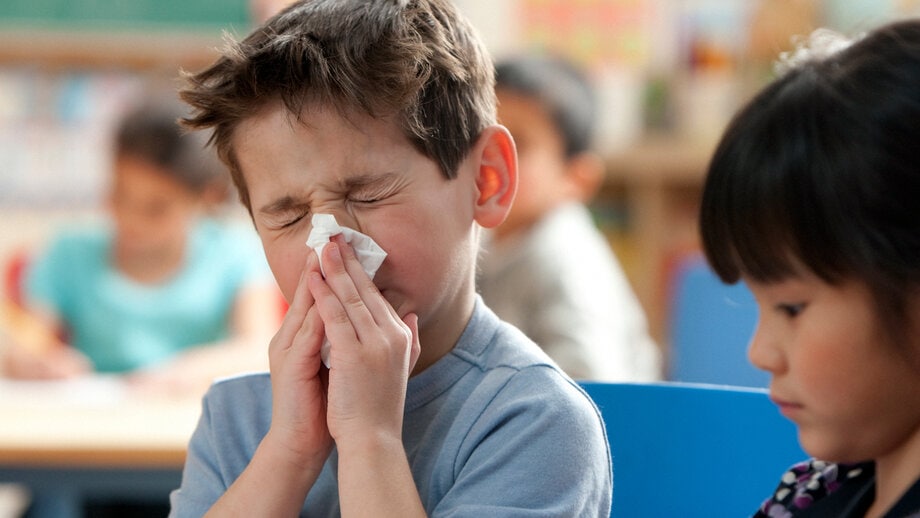Influenza in Children: Recognizing Symptoms and Best Practices for Care

Are you worried about your child getting the flu?
In this article, we will help you understand the impact of influenza on children and teach you how to recognize the common symptoms.
We will also provide you with effective strategies for managing the flu in your child and preventive measures to reduce its spread.
Lastly, we will guide you on seeking the necessary medical help and support for your child.
Stay informed and keep your little ones healthy!
Key Takeaways
- Influenza can have lasting effects on children’s health, including complications such as pneumonia, ear infections, and neurological issues.
- Vaccination significantly reduces the risk of flu-related complications in children.
- Common symptoms of influenza in children include high fever, cough, sore throat, runny or stuffy nose, and body aches.
- Proper diagnosis and treatment through seeking medical advice is crucial for managing influenza in children.
Understanding the Impact of Influenza on Children
Understanding the impact of influenza on children is crucial in order to provide the best care possible. Recognizing long term effects and understanding vaccine effectiveness are key in this regard.
When it comes to the impact of influenza on children, it is important to recognize that the virus can have lasting effects on their health. Some children may experience complications such as pneumonia, ear infections, or even neurological issues. By understanding these potential long term effects, healthcare providers can ensure appropriate treatment and follow-up care.
Additionally, understanding the effectiveness of the influenza vaccine in children is essential. Vaccination can significantly reduce the risk of flu-related complications and hospitalizations. It is important for parents and caregivers to be educated about the benefits of the vaccine and to ensure that their children receive the recommended doses.
Identifying Common Symptoms of Influenza in Children
It’s important to be able to spot the typical signs of flu in kids. When it comes to diagnosing influenza in children, there are a few common symptoms to look out for.
First, keep an eye out for a high fever, usually above 100.4°F (38°C). Additionally, children with the flu often experience a cough, sore throat, runny or stuffy nose, and body aches. They may also have headaches, fatigue, and sometimes even vomiting or diarrhea.
If your child displays these symptoms, it’s crucial to seek medical advice for proper diagnosis and treatment options. Treatment for influenza in children typically involves rest, plenty of fluids, and over-the-counter pain relievers to alleviate symptoms.
In severe cases or for children at high risk, antiviral medications may be prescribed to help shorten the duration of the illness and prevent complications.
Effective Strategies for Managing Influenza in Children
To effectively manage the flu in your child, try using a combination of rest, fluids, and over-the-counter pain relievers. Managing symptoms is crucial to helping your child feel better and recover faster.
Encourage them to get plenty of rest to allow their body to fight off the virus. Make sure they drink enough fluids to stay hydrated and help ease congestion. Over-the-counter pain relievers like acetaminophen or ibuprofen can help reduce fever and relieve any aches or pains.
Additionally, vaccination strategies play a vital role in preventing the flu in children. It is recommended that all children over six months of age receive an annual flu vaccine. This can significantly reduce the risk of contracting the flu and its severity if they do get infected.
Preventive Measures to Reduce the Spread of Influenza in Children
One effective way to reduce the spread of the flu in kids is by regularly washing their hands with soap and water. Teaching your children proper hand hygiene is crucial in preventing the transmission of the influenza virus.
Here are three preventive measures you can take to protect your child from the flu:
- Encourage frequent handwashing: Make sure your child understands the importance of washing their hands thoroughly with soap and water for at least 20 seconds, especially before meals and after using the restroom.
- Use hand sanitizers when necessary: When soap and water are not readily available, teach your child to use hand sanitizers that contain at least 60% alcohol. Remind them to cover all surfaces of their hands and rub until dry.
- Avoid touching the face: Instruct your child to avoid touching their eyes, nose, and mouth, as these are entry points for the flu virus. Encourage them to use tissues or elbows to cover their mouth when sneezing or coughing.
Seeking Medical Help and Support for Children With Influenza
When your child has the flu, don’t hesitate to seek medical help and support from healthcare professionals. They can provide the necessary medical interventions to help your child recover and alleviate their symptoms. Additionally, emotional support is crucial during this time as your child may feel uncomfortable or scared. Healthcare professionals can offer guidance and reassurance to both you and your child, helping you navigate through this challenging period. Remember, you are not alone in this journey. Here is a table that outlines the medical interventions and emotional support healthcare professionals can offer:
| Medical Interventions | Emotional Support |
|---|---|
| Prescribing antiviral medication | Listening to your concerns |
| Recommending plenty of rest and fluids | Providing guidance and reassurance |
| Monitoring your child’s symptoms | Offering coping strategies |
| Administering vaccines to prevent future infections | Educating you on the flu and its prevention |
| Providing follow-up care | Addressing any worries or anxieties |
Frequently Asked Questions
Can Children With Influenza Still Go to School or Daycare?
Yes, children with influenza can still go to school or daycare, but it is not recommended. Influenza transmission risks in school settings and the impact of influenza outbreaks on daycare facilities are significant concerns.
Is It Safe to Give Over-The-Counter Medications to Children With Influenza?
It’s important to consider safety concerns when giving over-the-counter medications to children with influenza. While these medications can provide relief, their effectiveness may vary. Always consult a healthcare professional for guidance.
Can Children Get Influenza More Than Once in a Season?
Yes, children can get influenza multiple times within a season. Their susceptibility to the virus and the duration of their immunity can vary, so it’s important to take preventive measures and seek medical advice if needed.
What Is the Recommended Age for Children to Receive the Influenza Vaccine?
The recommended age for children to receive the influenza vaccine is typically 6 months and older. It is important to protect your child from the flu by getting them vaccinated each year.
Are There Any Alternative Remedies or Natural Treatments for Influenza in Children?
There aren’t any alternative remedies or natural treatments for influenza in children. It’s always best to consult a healthcare professional for appropriate care and treatment options.









